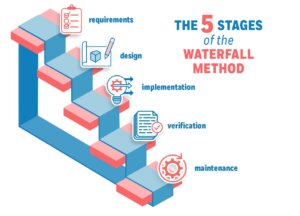Guest post from Claudia Vandermilt:
As a project manager, your teams rely on your leadership skills to guide and encourage productivity and project success. When provided with quality leadership, team members often respond positively; they build stronger relationships and rise to project challenges brought forth by their leader. Arm yourself with these five critical leadership skills to help propel a winning team:
1. Provide Structure
From the very beginning of a project, you must have a structured outline of your vision for the team. Each person should be clear on your mission, the timing and how you plan on achieving project success.
Create a project-specific document, in addition to the standard documents outlining roles and responsibilities. In the document, include team biographies, each person’s role and a personal anecdote; knowing something personal about each other, such as a team member’s home town or college alma mater, provides an opportunity for group bonding.
Additionally, each team member should be tracked and rated; follow their performance regarding specific assignments and their overall-project contribution.
2. Communicate Clearly
Communication is key and can make or break the success of your project. Clear, consistent communication can be a challenge; the days of only communicating via phone and email are long gone.
Technological advances such as Facebook, Twitter, smartphones, video conferencing and other social networking tools allow for team members all over the world to maintain real-time knowledge of project components. It is up to you to leverage these technologies in the most efficient way, and to make sure that the communication channels you use are locally available and culturally accepted.
3. Lead by Example
All project managers must foster a positive environment. In order for project success, all members must feel confident in executing their responsibilities; you must project a winning attitude and make decisions based on the best interest of the team. Make yourself readily available to team members, and always deliver project components on time (or early). Lead your team by example, and they will respond accordingly.
4. Encourage Trust
Trust between team members is vital to project success. The most important factor in building trust is based on completion of commitments. Whether commitments are based on planned tasks or verbal promises, team members must be encouraged to follow through in order to gain trust within the group dynamic. Team members should respond in a timely fashion to all requests, and offer to assist others when needed.
5. Motivate
All teams need a strong leader to motivate them through a project, regardless of the size or length of the project. It is your job to find the best ways to properly motivate your team. Recognizing team members for going above and beyond the scope of their responsibilities creates a cyclical response; your positive reinforcement motivates their work ethic. Make sure to verbally thank your staff, and consider rewards such as a bonus, vacation time, team dinners or gift cards. Keep rewards simple, and make sure all team members who strive for success are recognized.
With these five essential leadership steps, you’ll increase efficiency and team performance, and encourage early deliverables leading to successful project completion. Engaging and connecting with your team helps facilitate these skills and builds stronger, more positive relationships.
—————————
For more resources, see the Library topic Project Management.
—————————————————————————————————————————–
Claudia Vandermilt works with Villanova University as a copywriter on professional education, online certificate programs and career training. Villanova offers master certificates in project management, human resources, six sigma and other prominent fields.
 Sections of this topic
Sections of this topic













